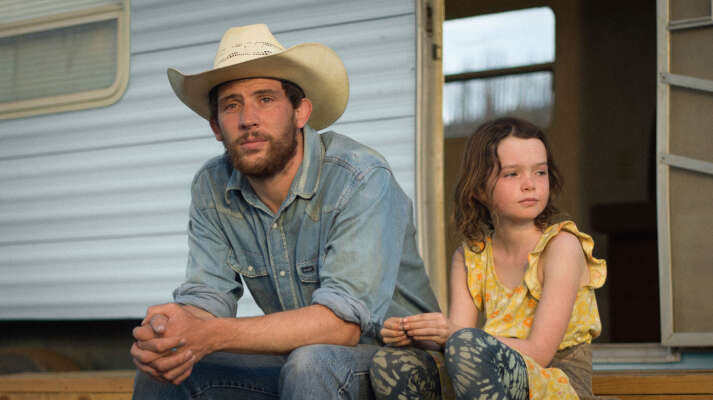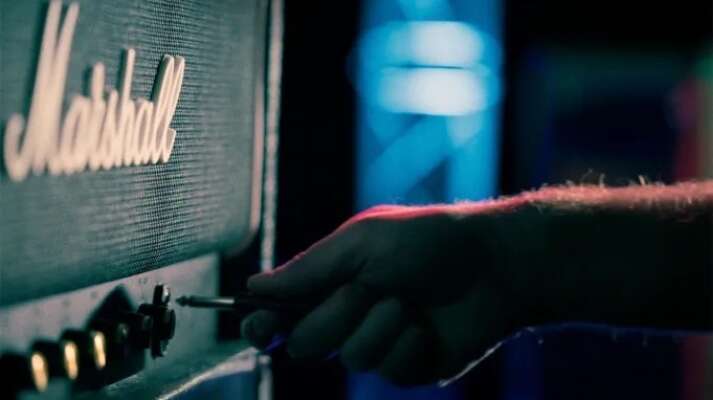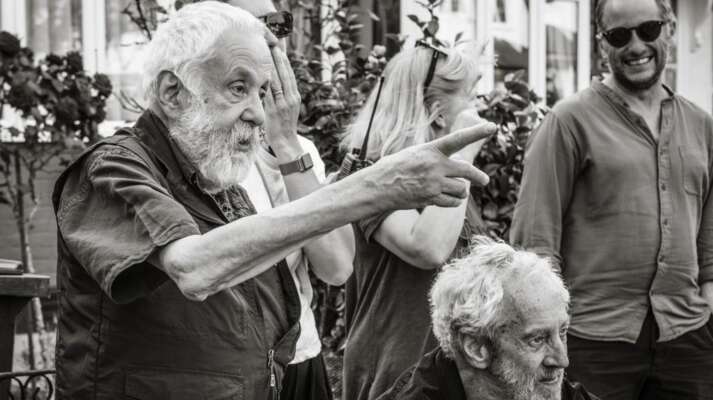Fathers & Daughters
Movies from Paper Moon to Leave No Trace explore this special bond
Fathers & Daughters
Written by Peter Bowen
In Debra Granik's Leave No Trace, veteran Will (Ben Foster) and his daughter Tom (Thomasin Harcourt McKenzie) create a world for themselves, living undetected in the wilds of Forest Park, a rambling wooded area in Portland, Oregon. When they are found by park rangers and pushed by social services to take up a more traditional living arrangement, their father/daughter bond is tested. While the film, and Peter Rock's novel from which it was adapted, was inspired by an actual father/daughter pair, the story it tells is as old as time. "I'm drawn to the ways classic stories depict close relationships in which people complement and complete each other," Granik explains about what drew her to make this movie. Foster's motivation was more personal. "When the script landed on my desk, my fiancée and I were expecting our first child," he recalls. As other notable films show, the father/daughter relationship is a remarkably rich and complex subject that seems to evolve with each new generation.

Paper Moon | A dramatic connection
Peter Bogdanovich's Paper Moon, one of the most acclaimed father/daughter films of all time, featured a real father/daughter team, Ryan and Tatum O'Neal. Based on Joe David Brown's novel Addie Pray , Paper Moon follows Moses Pray (Ryan O'Neal) as he drives Addie Loggins (Tatum)-who may or not be his actual daughter-to her aunt's home in St. Joseph, Missouri, after her mother's accidental death. Moses, uninterested in really being a father, encourages his newly found daughter to abet him in his small-town cons swindling widows with overpriced Bibles. Addie rebels by sabotaging his petty scams. The more these two bristle at the idea of being a family, the more a strange bond forms between them. Bogdanovich was not the first to think of casting an actual father/daughter team. The film's original director John Huston attached Paul Newman and his daughter Nell Potts to the project. But Bogdanovich was willing to exploit actual family tensions for dramatic effect. In Picture Shows: The Life and Films of Peter Bogdanovich, Andrew Yule describes how the father and daughter fought constantly, with Tatum missing set times and Ryan yelling at her, "Tatum, would you learn your lines." For Bogdanovich, this complicated love fuelled the story's emotions: "She's smarter than he is at every turn, but she's at a disadvantage - because she loves him." Audiences loved the impish Tatum, who won an Academy Award for Supporting Actress, making her at ten the youngest recipient of an Oscar to date. While the film proved a box office and critical success for Bogdanovich, he later admitted that working with young, rambunctious Tatum was "one of the most miserable experiences of my life."

The Descendants | Learning the role of father
While the novel The Descendants, on which Alexander Payne's film is based, is not autobiographical, its author Kaui Hart Hemmings understands a thing or two about daughters and fathers. Writing in The Guardian about being adopted at age 11 by her stepfather, the world-famous surfer and Hawaiian politician Fred Hemmings, she lays out her complicated feelings at the time: "I guess I want a dad, not a stepdad. I don't really know my real one. Fred feels like my real one." In the film, Matt King (George Clooney) must deal with his two daughters-the teenager Alexandra (Shailene Woodley) and the younger Scottie (Amara Miller)-when his wife is placed in a coma after a traumatic accident. Having spent all his time managing his family's real estate holdings, Matt, who calls himself "the backup parent, the understudy," realizes how woefully inexperienced he is to be the father he was supposed to have been all those years. The Christian Science Monitor's Peter Rainer points out that "how he deals with his daughters in this tragic situation is the heart of the film." As Matt confronts wave after wave of life-changing revelations, he finds his greatest support coming from the person he would least expect it. Like him, his daughter Alexandra is learning how to become a daughter, as well as an adult. "Essential to the venture's success is Woodley, who transforms convincingly from a girl who is reflexively condescending toward her father to one who becomes his eager accomplice and staunchest defender," notes The Hollywood Reporter's Todd McCarthy.

To Kill a Mockingbird | A daughter's story
Perhaps no father/daughter story is more revered than Harper Lee's To Kill A Mockingbird. In 2010, Oprah Winfrey proclaimed it "our national novel." For many, Robert Mulligan's screen adaptation with Gregory Peck playing Atticus Finch, a small-town lawyer defending a black man wrongly accused of rape in 1930s Alabama, is inseparable in our memory from the novel. When released in 1962, the film's heroic stand against racial injustice made it feel like a deeply political work. But according to Charles Shields' Mockingbird: A Portrait of Harper Lee, the original novel was meant for Lee's father Amasa as "a love story from a daughter to a father, who was a great man in a small town and the model for Atticus." Told through the eyes of six-year-old Scout (Mary Badham), the film recounts both the trial that is tearing up the town and the more day-to-day experiences of being raised along with her brother by a single dad. Their poignant relationship seems to many the very heart of the story, something that The New York Times' Bosley Crowther proclaimed was "worth all the footage of the film." The pairing of the two was so successful that Peck won the Academy Award for Best Actor with first timer Badham being nominated for Best Supporting Actress. A more heartfelt prize came when Lee gave Peck her father's beloved pocket watch because "there isn't anyone else who could play the part."

Interstellar | Growing worlds apart
While Christopher Nolan's nearly three-hour sci-fi epic Interstellar explores a universe of themes, from climate change to quantum physics to black holes, Jessica Chastain sees itin much simpler terms: "To me it's all about fathers and daughters." Nolan acknowledges as much, telling IndieWire, "The whole movie is about what it means to be a dad." At its center, the film's story revolves around a double helix of father/daughter pairs. Chastain plays Murphy, the adult daughter of Cooper (Matthew McConaughey), the farmer-turned-astronaut who has taken to space to save mankind. On the ship with him is Dr. Brand (Anne Hathaway), whose father (Michael Caine) stays on Earth with Murphy, researching the theoretical conditions that might allow mankind to find salvation via travel through a wormhole. Woven deep into the film's cosmos of astrophysical anomalies and space-time continuums is a moving allegory of what it means to be a parent. As The Telegraph's Robbie Collins suggests, the story's complicated narrative arcs dealing with time speak to "the way it's experienced by parents, who watch their children grow up and drift away at a speed that seems brutally out of step with the rest of the universe."

Hanna | Leaving home
Joe Wright's Hanna wraps up a tender father/daughter relationship in an adrenaline-fueled spy tale of an ex-CIA operative (Eric Bana) who raises and trains his child (Saoirse Ronan) to become the perfect assassin. As she grows older, she learns that her rigorous education has a reason and a target, a rogue agency director (played by Cate Blanchett) who wants her and her father dead. Part high-tech thriller, part fairy tale, the film captures the difficult route Hanna takes to become a young adult on her own as well as the difficulty her father has in letting her go. "I was interested in the idea of parenting," Wright tells The San Diego Union-Tribune, adding, "You're always going to fail your parents and you're always going to fail your children." But despite that tough transition, kids never drift far from home. "All teenagers want to rebel a little and break away," Ronan told AMC. "But I think you are always going to want to go back to your parents for that safety they provide."


